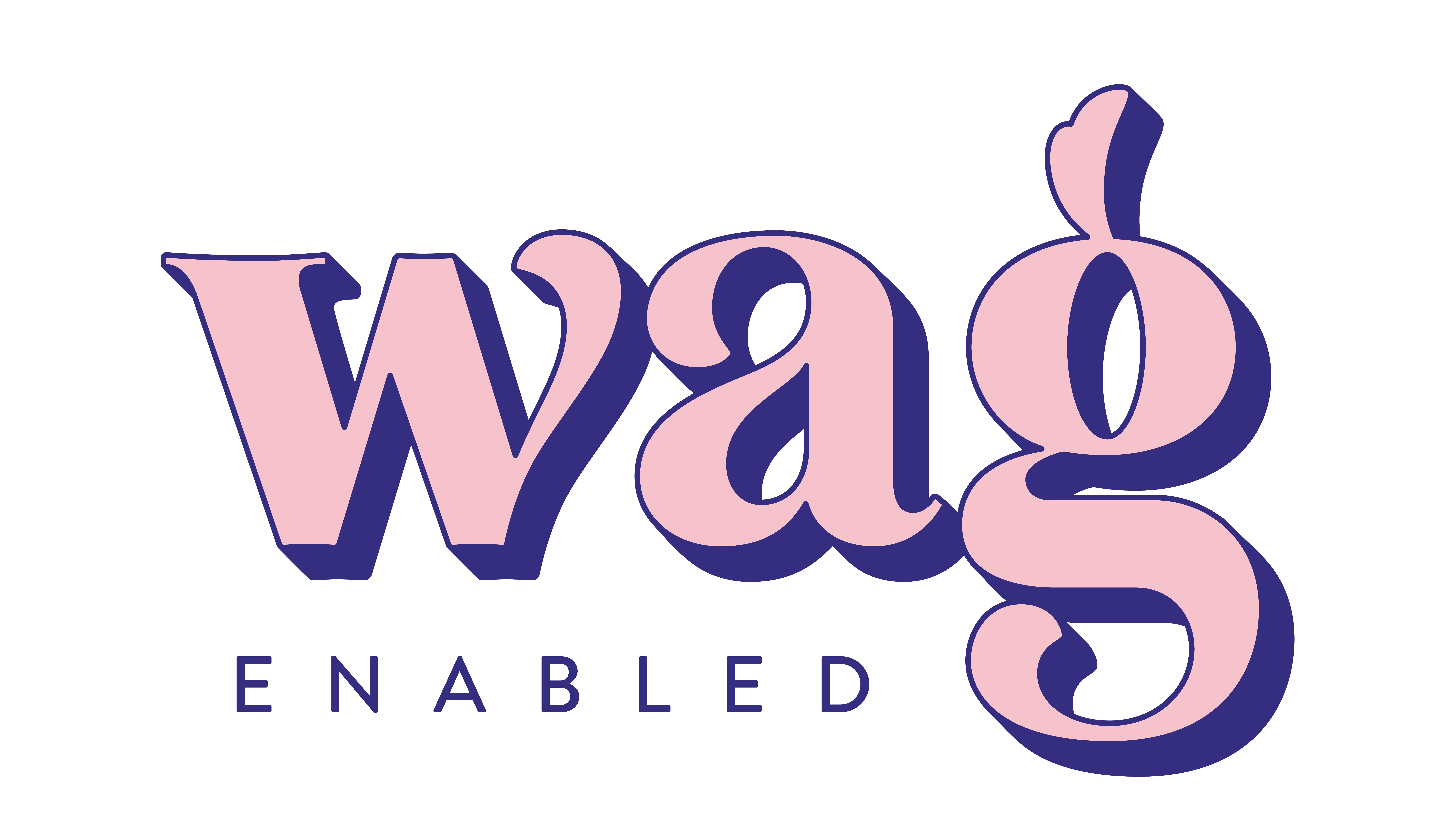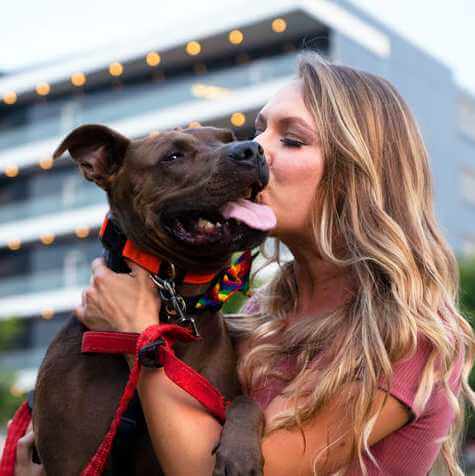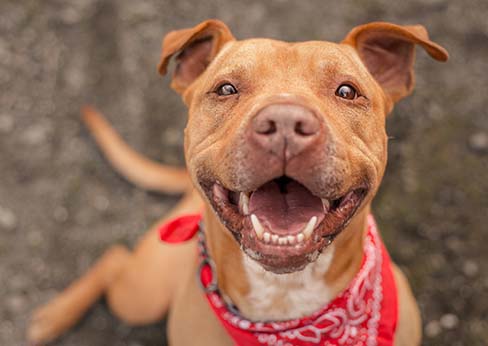How To Be An Advocate For Adoption
In this post:
- Stop hating on the breeders
- Be a social media advocate
- Advocate “bully” breeds
- Top reasons to adopt
Bringing an animal home is a life milestone that marks the growth of your family. Whether you’re an individual looking for a canine companion or a larger family who wants to add another furry friend to your collection, the addition of a pet into your home offers a significant improvement to your daily life.
People have two choices when you decide on how you want to get your next pet: adoption or buy from a breeder.

Outreach is a cornerstone of a shelter’s community mission, and part of that outreach is literally encouraging community members to consider adoption. And we all know that shelters and rescues are filled to the brim with amazing animals that are looking for a second chance.
The goal of this post is to help you become a better advocate for adoption.
1. Stop hating on the breeders
When you were growing up and your parents told you not to do something, how likely were you actually follow and not do it? People have this mindset of “Don’t tell me what to do!”. If your friend or family member decides to buy a puppy from a breeder it can be hard not to get upset and tell them how wrong this decision is. But this is actually doing the opposite of what you are intending.

Instead of getting angry, help educate them about responsible breeders. The shelters are full because there are too many back-yard breeders and puppy mills that are producing dogs with behavioral and health issues. Those poor animals eventually end up at the shelter. By promoting responsible breeders we are sticking at the root of the problem – before those animals get to the shelters.
Also, talk to your family and friends about preventative measures. Point them to information about raising a well balanced and socialized dog. Show them what they can do to prevent that dog from ending up in the shelter – things like getting health insurance and finding a trainer in advance. Be their support system! This does several things:
- It keeps the animals out of shelters: Through education, those new puppies can stay in their homes longer.
- It makes you seem like an expert: People can come to you with questions without the fear of being judged.
- You are advocating for shelters: It might not seem like it, but when you stay positive and understanding, you might actually suggest checking out a breed-specific rescue for a puppy. Your friends and family might be more receptive.
- You are painting a more positive outlook on adoption: Even if your friend buys the puppy from a breeder, they might refer their friends to you for advice on the best way to get a new dog.
2. Be a social media advocate
Hands down one of the easiest ways to promote adoption is through social media. Your new dog is freaking cute, you are excited, and you are constantly on the phone. “On average global internet users spent 2 hours and 23 minutes on social media per day, though trends differed widely by country.” – Katharina Buchholz

Social media offers a visual, immediate, and wide-reaching avenue to advertise and support adoptions. Posting pictures on Instagram or Facebook, for example, allows owners to share parts of their lives with their network in addition to supporting the networks that brought them their new dog.
One small thing you can do is to upload a picture of your new shelter dog smiling. This presents an implicit, positive message about animal adoption: “pets are happy to be adopted, and I want to share my adopted pet with the world.”
Here is Truffle, my adopted Pit Bull having fun at a daycare with new friends. Pictures like these can help your friends and family members see that adopted dogs are not damaged and that they make amazing pets!
Check out Rethinking Shelter Dogs for more information.
3. Advocate "bully" breeds
“So we do encourage people to when they adopt a bully breed to a certain degree become breed ambassador for their dog. So, make sure that, Hey, I’ve got this, it could be a couch potato of a dog, I’ve got this couch potato that loves watching TV with me or I’ve got this running partner, look at us here is my selfie in the park. And so, some of it is encouraging people to be the best that they can be in showing their friends and their neighbors or their old classmates, hey, look at this dog. This dog is awesome. I don’t care what people say. But also let’s make sure we are trying our best to put out that awesome dog.” – John Griffin.
“When you are out in public with your dog you have to, not only be educated about the stigma or the myths that surround your dog, you have to be able to take that and convert it and just show people that they are no different than any other dog. So you constantly being an advocate, you consistently speaking out for the dogs.” – Jeffrey “Pitbear” Loncosky
4. Top reasons to adopt
Lastly, be able to provide some reasons why someone should consider adopting a dog. Make sure you present these in a positive and non-lecture way! Here are our top 10 reasons.
1. You save a life.
Each year, around 920,000 shelter animals are euthanized including 390,000 dogs and 530,000 cats, simply because too many pets come into shelters and too few people consider adoption when looking for a pet. By adopting an animal, you can reduce the number of pets euthanized each year. You also open a space at a shelter for a dog who might need it.
2. You help break the cycle of pet overpopulation.
There are simply not enough homes for all the animals. Adopting can help weaken the overpopulation cycle because the dog is already born and ready to be loved. By adopting an animal, you also open up room for another animal to come in. Keeping more animals off the streets.
3. You help stop cruelty in mass breeding facilities.
4. Your home will thank you.
Most of the pets at the shelters are mature dogs. Which means that you are less likely to get a dog who is going to destroy everything in your house, chew on things and worst of all, potty in the house. Even the young puppies are more likely to be trained if the shelter has staff who are able to do so.
5. You get a lifetime resource with shelter employees and volunteers.
6. You have a choice of some amazing animals.
7. You are getting a healthier pet.
8. You support a worthwhile charity and community institution.
9. You pay less.
10. You encourage others to adopt animals from shelters.
Special Thanks To...

John Griffin is the director of shelter services at Women’s Animal Center in Bensalem, PA. They are committed to the humane and compassionate treatment of animals and are distinguished as America’s First Animal Shelter. John also volunteers his time with Big East Akita Rescue providing behavior evaluations and transports for homeless Akitas found or surrendered in the greater Philadelphia region.

Founded in 1869 Women’s Animal Center is an open-admission shelter helping pets and their owners in Lower Bucks County and far Northeast Philadelphia. WAC takes in approximately 3,000 animals a year through the animal shelter with a live release rate of over 90%. WAC operates a full-service veterinary hospital whose services include; surgery, routine vaccines, x-rays, ultrasounds, and dental care.






